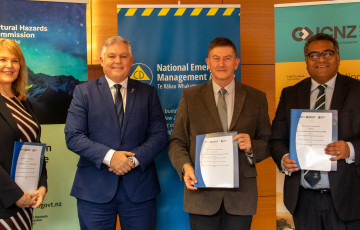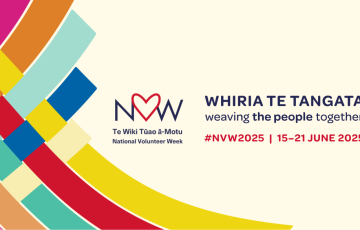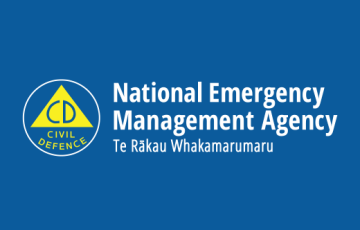Disaster preparedness survey results a wakeup call to Kiwis
Only two in five New Zealanders feel well prepared for a disaster, says the National Emergency Management Agency (NEMA), and this should be a wakeup call to Kiwis who risk leaving it too late.
MEDIA RELEASE
Disaster preparedness survey results a wakeup call to Kiwis
Only two in five New Zealanders feel well prepared for a disaster, says the National Emergency Management Agency (NEMA), and this should be a wakeup call to Kiwis who risk leaving it too late.
NEMA today announced the results of the 2022 Annual Disaster Preparedness Survey, which shows a dip in Kiwis’ preparedness for disasters. The independent survey was undertaken by The Research Agency (TRA) on behalf of NEMA and was released today to mark the International Day for Disaster Risk Reduction.
Director Civil Defence Emergency Management Gary Knowles says although Kiwis have a sound understanding and awareness of natural disasters and their impacts, it’s not being followed through with action.
“What the survey shows is that we have the foundations for a prepared society, and we understand that preparing for a disaster is our personal responsibility, but we aren’t taking steps to get prepared. This needs to change.
“Research indicates an Alpine Fault earthquake is likely in the next 50 years and the impacts of extreme weather events caused by human-induced climate change are only becoming more frequent and intense. There’s more need to prepare now than ever before.”
“While we can’t stop disasters, a few simple steps can make getting through a disaster easier and less stressful.”
Mr Knowles says there are some encouraging results. Most people in Aotearoa continue to know what actions they should take in an earthquake or tsunami, and over half view disaster preparation as being quite easy.
“However, it is concerning to see that only one third of Kiwis have taken any steps to prepare themselves or their households for a disaster in the past 12 months.
Mr Knowles says getting prepared is easier than you think - it just starts with a conversation with your whānau or flatmates to make a plan.
“Ask a few simple questions – what do we need, where will we go? Think about who needs our help, and who could help us.
“It’s important to talk about what our plans are if we’re stuck at home or can’t pick up kids from school, and what we’ll do if the roads are closed, or the internet and phone lines are down.”
Mr Knowles says, “We know disasters are the biggest motivator for preparation, but we’re urging people not to wait for a big emergency before getting prepared – do it now”.
The survey report is available here. To make a plan and get prepared for an emergency, visit www.getready.govt.nz, and check out your local Civil Defence Emergency Management Group.
Published: Oct 13, 2022, 11:15 AM



